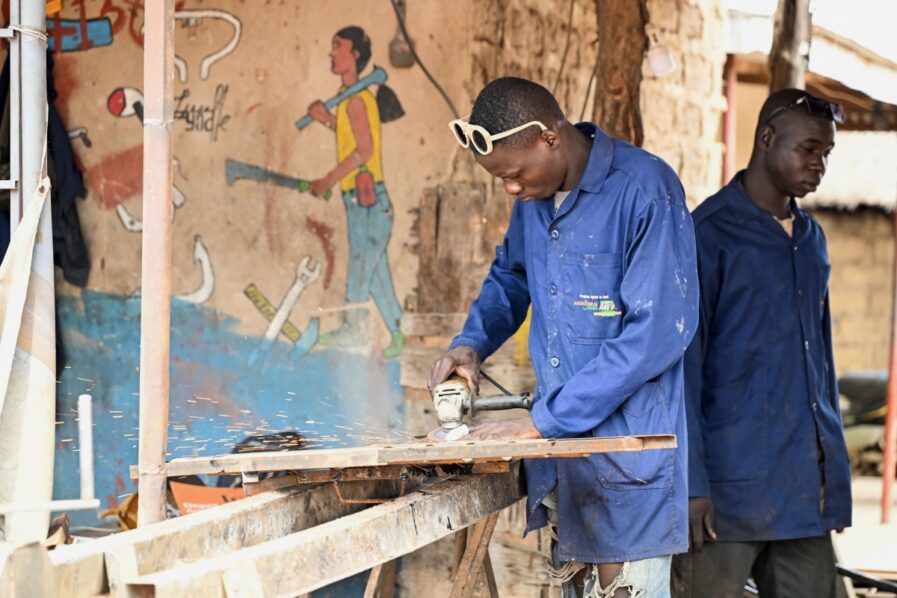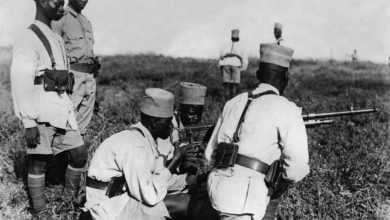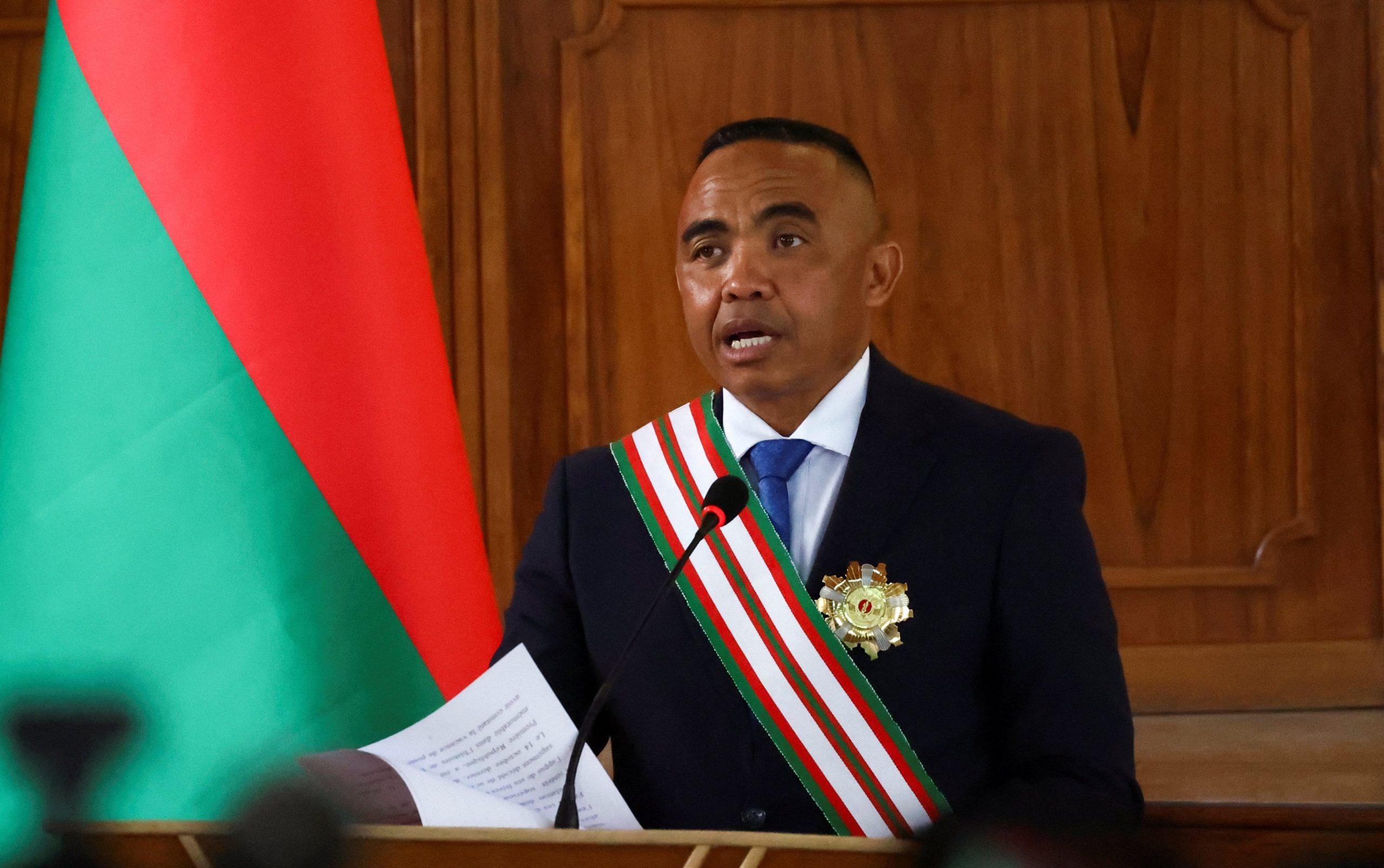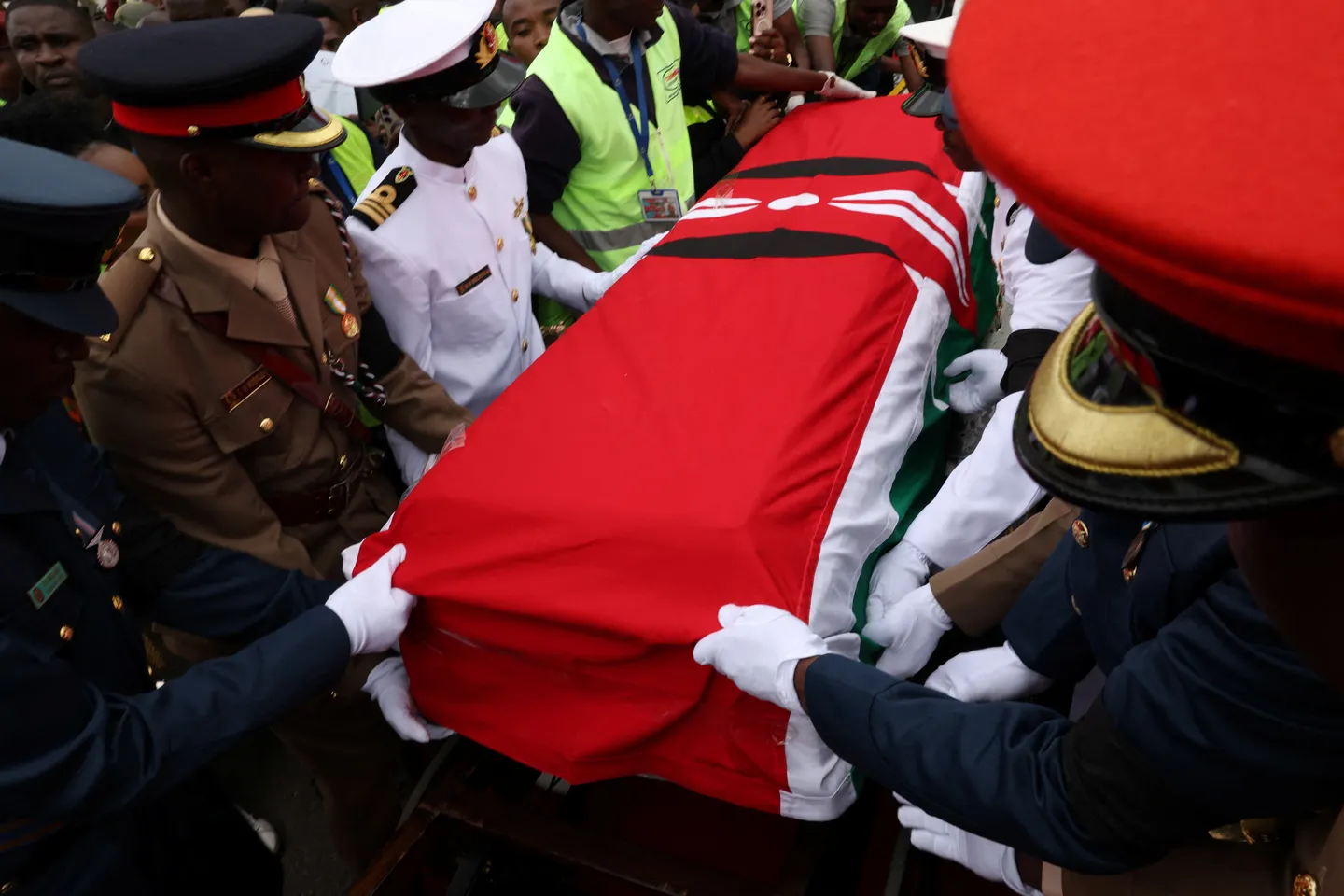
For months after presumed jihadists attacked it in 2020, Kafolo in northern Ivory Coast resembled a ghost town.
Four years later, it is flourishing again, thanks in part to a double-pronged government plan — boosting security on the one hand, tackling poverty and youth unemployment on the other.
Fourteen soldiers were killed in the first assault in June 2020, two others in March the year after.
After that, Kafolo’s fields were deserted, its shops shuttered. Its inhabitants hid at home, fearful of more militant attacks.
Now Kafolo is buzzing with life again. Restaurants, hairdressers and garages have reopened, and locals go about their business as usual. A secondary school opened in the village last year.
“They (the authorities) didn’t let us down,” local chief Tiemogo Bamba told AFP.
“There have been lots of positive changes. Young people are involved in developing the village. They’ve got places in workshops, training courses and apprenticeships,” he said.
In early 2022, the authorities in the west African country launched a youth programme, particularly aimed at the northern regions bordering Burkina Faso and Mali, where several armed groups operate.
The goal is to ensure young people learn a trade so they are less tempted to join the militants and illegal gold miners who actively recruit in the region.
Eighteen-year-old Kambire Koko is serving an apprenticeship in the Kafolo forge.
“Learning a skill is better than hanging around doing nothing,” he said as he cut out metal window frames.
“When you’re idle, it’s very tempting if someone comes and offers you money and a motorbike to go into dodgy business,” he explained.
– ‘Motivating’ –
Every month Koko earns 30,000 CFA francs (about $50) from a government apprenticeship support scheme.
He hopes to set up his own workshop soon.
“I can buy myself something to eat with the money. That motivates me to learn a trade,” said mason’s apprentice Augustin Pale Sansan, adding that he nonetheless hoped the grant would go up.
Other young people in Kafolo have received loans.
Naminata Bamba used hers to reopen her restaurant and expand the menu.
Lamissa Traore, head of the village’s youth organisation, reopened his shop and had sufficient funds to help his family.
“After the attacks, my business folded. But thanks to a loan and a subsidy, I set up again and I had enough money to send two more of my children to school,” he grinned.
Casimir Dje Bi, the head of the region’s youth employment agency, said the policy was “yielding dividends”.
“Today, people can move around the region without an armed escort,” he said.
“And we’re delighted to see all these young people gainfully occupied. They’ve got a different opinion of themselves now.”
In total, the government says nearly 54,000 young people have received support in northern Ivory Coast.
– Cross-border tensions –
Local officials say security has improved in the north too.
Armed militants operate across the border in Burkina Faso, sometimes just a few kilometres (miles) from Kafolo.
But on the Ivorian side, where more soldiers have been deployed, the authorities say there have been no security incidents since the 2021 attacks.
When AFP visited Kafolo in September, the local chief was less concerned about attacks and more about floods that have swallowed several houses since the Comoe river, which forms the border with Burkina, overflowed its banks.
“There are lots of soldiers around now,” said Bamba.
“We’re not so scared and people have even started farming again.”
They are still worried, however, by continuing insecurity on the Burkina side of the river.
“I have family just over there in Burkina, but I’ve not been anywhere near there since the Kafolo attack. The jihadists are right there!” Traore said.
Tense diplomatic relations between the Ivory Coast government and the military junta ruling Burkina Faso have not made it any easier for people to move across the border.
“We used to have a market five days a week. People from Burkina used to come here and we used to go to their markets. But that’s all over,” Bamba said.
“And what’s more, if you go to Burkina and say you’re from Kafolo in Ivory Coast, you could have problems.
“We’re scared of going there because of jihadists and VDP militias,” Bamba added.
The Homeland Defence Volunteers (VDPs) — civilians recruited into the Burkina army to boost numbers — have been accused of a string of abuses against civilians.






